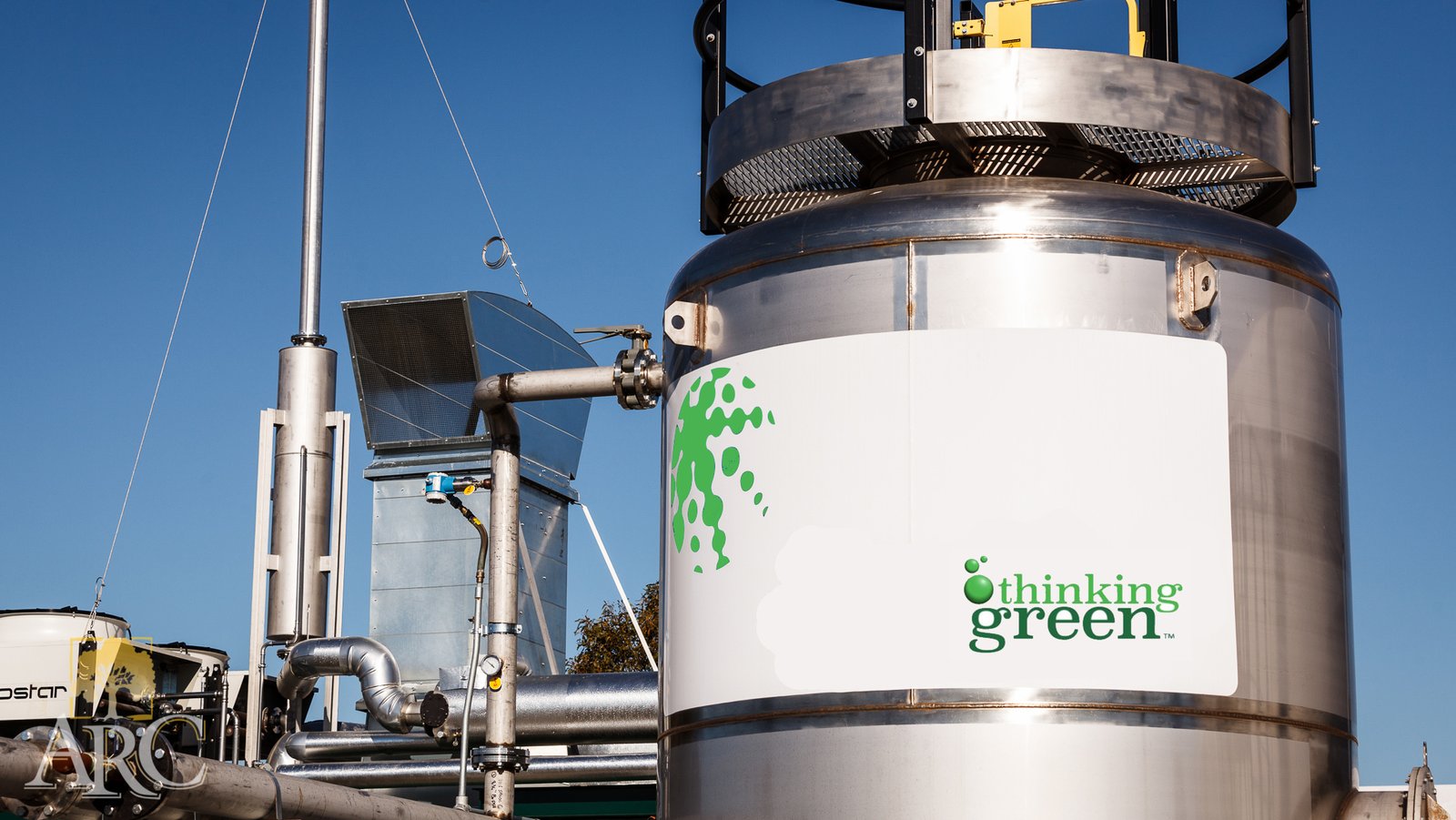Now Reading: The Importance of Off-Grid Water Filtration Systems
-
01
The Importance of Off-Grid Water Filtration Systems

The Importance of Off-Grid Water Filtration Systems
In a world where we are constantly bombarded with news of polluted waters, it becomes imperative to explore alternative solutions to ensure access to clean and safe drinking water. While we often take the convenience of modern filtration systems for granted, there lies an immensely significant method of water purification that is often overlooked – off-grid water filtration systems. These unsung heroes of water purification possess an innate ability to unravel a world of possibilities, detached from conventional power sources and infrastructure, bringing fresh hope to remote communities, outdoor enthusiasts, and even survivalists. Today, we delve into the captivating realm of off-grid water filtration systems to unravel their importance and shed light on how they are revolutionizing the way we quench our thirst, even in the most isolated corners of the world.
Table of Contents
- The Power of Independence: Off-Grid Water Filtration Systems Empower Communities
- Unlocking Safe Drinking Water: Benefits of Investing in Off-Grid Filtration Systems
- Navigating Challenges: Ensuring Reliable Operation of Off-Grid Water Filtration Systems
- Sustainable Solutions for a Thirsty Planet: Off-Grid Filtration Recommendations
- Embracing a Cleaner Future: Role of Off-Grid Filtration Systems in Environmental Preservation
- Q&A
- Wrapping Up

The Power of Independence: Off-Grid Water Filtration Systems Empower Communities
Imagine a world where access to clean and safe drinking water is not reliant on the infrastructure of a city or the reach of a centralized authority. Off-grid water filtration systems are revolutionizing the way communities meet their water needs, empowering them to become self-sufficient and independent. These innovative systems utilize advanced filtration technologies to purify water from various sources, such as rivers, lakes, or even rainwater. By harnessing the power of independence, these solutions have the potential to transform the lives of countless individuals worldwide.
Off-grid water filtration systems bring an array of benefits to communities. Here are a few reasons why they are changing the game:
- Self-Reliance: By using off-grid water filtration systems, communities become less reliant on external organizations or infrastructure for their water supply. This newfound self-reliance empowers them to weather emergencies and ensures a sustainable source of clean water.
- Cost-Effective: Unlike centralized water systems that require extensive maintenance and costly investments, off-grid systems offer a cost-effective alternative. The simplicity of these systems reduces the burden of maintenance, making them ideal for communities with limited resources.
- Environmentally Friendly: Off-grid water filtration systems operate using natural energy sources such as solar power or gravity, minimizing their carbon footprint. This eco-friendly approach helps preserve the environment and promotes sustainable practices.
With the power of independence in their hands, communities can overcome the challenges associated with water scarcity and poor water quality. These innovative solutions offer hope for a future where everyone has the ability to access clean, safe, and sustainable water.

Unlocking Safe Drinking Water: Benefits of Investing in Off-Grid Filtration Systems
Investing in off-grid filtration systems can have numerous benefits in unlocking safe drinking water for communities around the world. These innovative systems offer an effective and sustainable solution to the pressing issue of water contamination, ensuring access to clean and potable water for the most remote and underserved areas.
Here are a few key advantages of investing in off-grid filtration systems:
- Improved Health and Reduced Diseases: By removing harmful contaminants and pathogens, off-grid filtration systems can significantly reduce the risk of waterborne diseases such as cholera, dysentery, and typhoid. This vital step towards clean drinking water can have a transformative impact on community health, particularly among vulnerable populations such as children and the elderly.
- Environmental Sustainability: Off-grid filtration systems operate without the need for costly and environmentally harmful infrastructure, such as large-scale water treatment plants. These systems prioritize renewable energy sources, such as solar or wind power, minimizing carbon emissions and reducing the ecological footprint.
- Empowering Communities: Off-grid filtration systems can empower communities by providing them with a self-reliant and sustainable solution for accessing clean water. By removing the dependence on centralized water supply systems, communities gain control over their water sources and reduce their vulnerability to erratic or interrupted supply.
- Cost-Effectiveness: Investing in off-grid filtration systems can offer significant cost savings in the long term. Compared to traditional water treatment methods that require extensive infrastructure and ongoing maintenance costs, off-grid systems are often more affordable, making clean drinking water more accessible to communities with limited financial resources.
By recognizing the benefits of investing in off-grid filtration systems, we pave the way for a future where safe drinking water is a fundamental right for all. Through these innovative solutions, we can unlock opportunities for healthier communities, environmental sustainability, and improved quality of life.

Navigating Challenges: Ensuring Reliable Operation of Off-Grid Water Filtration Systems
When it comes to off-grid water filtration systems, ensuring reliable operation can be a complex task. These systems play a crucial role in providing clean drinking water in remote locations or during disaster situations. However, they are not exempt from facing their fair share of challenges. Here, we will explore some of the key hurdles and strategies to overcome them, ensuring that these vital systems continue to function effectively:
1. Power Supply:
One of the primary challenges faced by off-grid water filtration systems is the reliable and uninterrupted power supply. As these systems often operate in remote areas with limited or no access to electricity, alternative energy sources become essential. Solar panels can provide a sustainable and eco-friendly solution for powering these filtration units. By harnessing the power of the sun, these systems can operate consistently, ensuring a constant supply of clean, filtered water.
2. Maintenance and Monitoring:
Maintaining and regularly monitoring off-grid water filtration systems is crucial to their reliable operation. Due to their remote location, it is essential to establish a comprehensive maintenance schedule and conduct routine inspections. This includes checking the filters for blockages, verifying the system’s overall performance, and ensuring all components are in working order. Implementing a proactive maintenance plan will help detect and address potential issues before they become major problems, minimizing downtime and maximizing the system’s efficiency.
3. Water Source Variation:
Off-grid water filtration systems often have to deal with varying water sources, especially in remote locations. Understanding the quality and composition of the water source is vital to ensure effective filtration. Each water source may require specific types of filters or treatment methods to remove contaminants successfully. Regular water testing and analysis should be conducted to identify any changes in the water source and adapt the filtration system accordingly. By staying adaptive and flexible, off-grid water filtration systems can continue to provide clean and safe drinking water, regardless of the source’s variation.
Sustainable Solutions for a Thirsty Planet: Off-Grid Filtration Recommendations
When it comes to ensuring a clean water supply for communities off-grid, adopting sustainable filtration methods is crucial. Here are some recommendations that can make a significant impact:
- 1. Biological Filtration: Utilizing natural materials such as sand, gravel, and activated carbon can effectively remove impurities from water. By creating a layered filtration system, contaminants are trapped, leaving behind clearer and safer drinking water.
- 2. Solar-Powered Systems: Harnessing the power of the sun to operate water filtration systems is not only environmentally friendly but also cost-effective. With advancements in solar technology, off-grid communities can now access clean drinking water without relying on non-renewable energy sources.
- 3. Rainwater Harvesting: Encouraging the collection and filtration of rainwater provides a sustainable solution for off-grid areas. Rain barrels and cisterns can be used to store rainwater, while effective filtration systems can remove any sediments or impurities, resulting in a reliable water source.
In conclusion, implementing off-grid filtration solutions that prioritize sustainability is paramount for a thirsty planet. By incorporating biological filtration, solar-powered systems, and rainwater harvesting, communities can access clean drinking water without negatively impacting the environment.
Embracing a Cleaner Future: Role of Off-Grid Filtration Systems in Environmental Preservation
Off-grid filtration systems play a crucial role in paving the way for a cleaner future. By harnessing innovative technology, these systems offer environmentally friendly solutions that can greatly contribute to the preservation of our planet. One of the key benefits of off-grid filtration systems is their ability to provide clean and safe drinking water in remote areas where traditional infrastructure is limited or non-existent.
These filtration systems operate independently from the main grid, using renewable energy sources such as solar power or wind energy. This not only reduces dependence on fossil fuels but also minimizes greenhouse gas emissions, making them an eco-friendly alternative.
In addition, off-grid filtration systems are designed to efficiently remove contaminants and impurities from various water sources, ensuring that the water is safe for consumption. Whether it’s filtering out sediment, harmful bacteria, or chemical pollutants, these systems employ advanced filtration techniques to produce high-quality drinking water.
By embracing off-grid filtration systems, we can make a significant impact on environmental preservation. Providing clean water in remote areas, reducing carbon footprints, and minimizing pollution are just some of the ways these systems contribute to a greener future. It is essential that we invest in and promote these sustainable solutions to ensure a cleaner and healthier planet for generations to come.
Q&A
Why is having off-grid water filtration systems important?
Off-grid water filtration systems are crucial because they provide a reliable source of clean, drinkable water, especially when traditional water sources are contaminated or unavailable. These systems ensure the health and well-being of individuals, families, and communities in remote or disaster-stricken areas.
What makes off-grid water filtration systems different from traditional systems?
Off-grid water filtration systems are specifically designed to operate without reliance on a centralized water supply or electricity. They utilize innovative technologies and processes to effectively remove harmful contaminants from various water sources, such as rivers, lakes, or even rainwater.
Can off-grid water filtration systems be used in developing countries?
Absolutely! Off-grid water filtration systems have incredible potential to provide safe water solutions in developing countries where access to clean drinking water is limited. These systems are cost-effective, easy to transport, and can be deployed in remote areas to significantly improve public health and sanitation.
How do off-grid water filtration systems impact the environment?
Off-grid water filtration systems have a minimal ecological footprint. By not relying on bottled water or energy-intensive processes, they reduced plastic waste and energy consumption. Additionally, some advanced models come equipped with solar power, making them not only environmentally friendly but also sustainable.
Are off-grid water filtration systems efficient in treating different types of contaminants?
Yes, off-grid water filtration systems are versatile and can effectively remove a wide range of contaminants, including bacteria, viruses, protozoa, chemicals, and heavy metals. Many systems utilize multi-stage filtration processes that combine physical, chemical, and biological methods to ensure thorough purification.
Can off-grid water filtration systems withstand emergencies or natural disasters?
Off-grid water filtration systems are designed to withstand emergencies and natural disasters. Their robust construction, durability, and ability to operate without electricity or running water make them invaluable during emergencies, providing a reliable source of clean water when needed the most.
Are off-grid water filtration systems cost-effective in the long run?
Although the initial investment in off-grid water filtration systems may seem higher, they prove to be cost-effective in the long run. By eliminating the need to purchase bottled water and reducing the risk of waterborne diseases, these systems save money and greatly contribute to overall public health and well-being.
Wrapping Up
As we bid adieu to our exploration of the indispensable world of off-grid water filtration systems, it is evident that their significance can neither be dismissed nor ignored. Delving into the depths of this watery realm, we have unravelled the crucial role these systems play in safeguarding our health and harnessing the power of nature. From the archaic charm of charcoal filters to the cutting-edge wonders of ceramic and ultraviolet technology, off-grid water filtration systems seamlessly blend innovation with self-sufficiency.
With each droplet filtered, we have come to realize that these unassuming contraptions transcend mere convenience. They stand as silent sentinels, traversing the boundaries of civilization to provide clean and potable water, unencumbered by connectivity or external support. In a world that steadfastly grapples with environmental challenges and unpredictable calamities, these systems remain steadfast in their mission to quench our thirst and protect our well-being.
But it is not just their practicality that captures our attention; rather, it is the beauty of their self-sufficiency that strikes a harmonious chord. As we gaze upon these off-grid filtration systems, we embrace the notion of tapping into nature’s bountiful offerings, finding solace in the idea that we can harness the purity of water without tarnishing Mother Earth. The unyielding grace with which these systems blend seamlessly into any landscape echoes the spirit of coexistence, realizing that human progress need not come at the expense of nature’s delicate balance.
In this extraordinary journey, we have witnessed firsthand how off-grid water filtration systems hold the key to a harmonious future. To embrace these systems is to embrace a sustainable path, one where we learn to trust in the capabilities of technology while humbly bowing to the ancient wisdom of the natural world. As we conclude our voyage into this riveting domain, let us remember the pivotal role these systems play in safeguarding our health, fostering self-sufficiency, and nurturing our planet.
So, let us raise our glasses – filled with the elixir of life, purified through the sheer magic of off-grid water filtration systems – and toast to a future where clean water flows freely, guided by the gentle touch of innovation and respect for our fragile Earth. Cheers to our journey’s end and to the beginning of a brighter, more sustainable future!
As an affiliate, my content may feature links to products I personally use and recommend. By taking action, like subscribing or making a purchase, you’ll be supporting my work and fueling my taco cravings at the same time. Win-win, right?
Want to read more? Check out our Affiliate Disclosure page.





